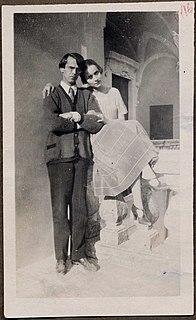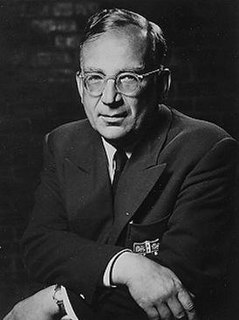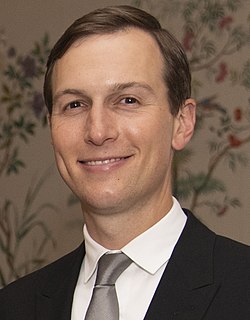A Quote by Nina Berberova
Doesn't the theory of relativity concern literature too? In our world there is no longer any room for the privileged observer, as there is none for the observer of the universe - we are all within.
Related Quotes
Quantum theory thus reveals a basic oneness of the universe. It shows that we cannot decompose the world into independently existing smallest units. As we penetrate into matter, nature does not show us any isolated "building blocks," but rather appears as a complicated web of relations between the various parts of the whole. These relations always include the observer in an essential way. The human observer constitute the final link in the chain of observational processes, and the properties of any atomic object can be understood only in terms of the object's interaction with the observer.
On the most usual assumption, the universe is homogeneous on the large scale, i.e. down to regions containing each an appreciable number of nebulae. The homogeneity assumption may then be put in the form: An observer situated in a nebula and moving with the nebula will observe the same properties of the universe as any other similarly situated observer at any time.
Although the theory of relativity makes the greatest of demands on the ability for abstract thought, still it fulfills the traditional requirements of science insofar as it permits a division of the world into subject and object (observer and observed) and, hence, a clear formulation of the law of causality.
A curiously interested observer sees a great deal, a scientifically interested observer is worthy of all honor, and anxiously interested observer sees what others do not see, but a crazy observer sees perhaps the most, his observation is more intense and more persistent, just as the senses of certain animals are sharper than those of man.
Imagine an extrahuman observer looking at us. Such an extrahuman observer would be struck precisely by the uniformity of human languages, by the very slight variation from one language to another, and by the remarkable respects in which all languages are the same. And then he would notice we do not pay any attention to that because for the purpose of human life it is quite natural and appropriate just to take for granted everything that is common. We don't concern ourselves with that, all we worry about are differences.
The creativity that comes from silence, from a quiet heart, feels different from that of ambition to both the creator and the observer. When the artist or the worker is out of the way, both the creator and the observer experience the art as simply a gift, an expression of the impersonal intelligence shared by all. The creator has no need to take credit for it, the observer no need to possess it.
The U theory suggests that the central integrating thought ... will emerge from building three integrated capacities: a new capacity for observing that no longer fragments the observer from what's observed; a new capacity for stillness that no longer fragments who we really are from what's emerging; and a new capacity for creating alternative realities that no longer fragments the wisdom of the head, heart and hand.





































